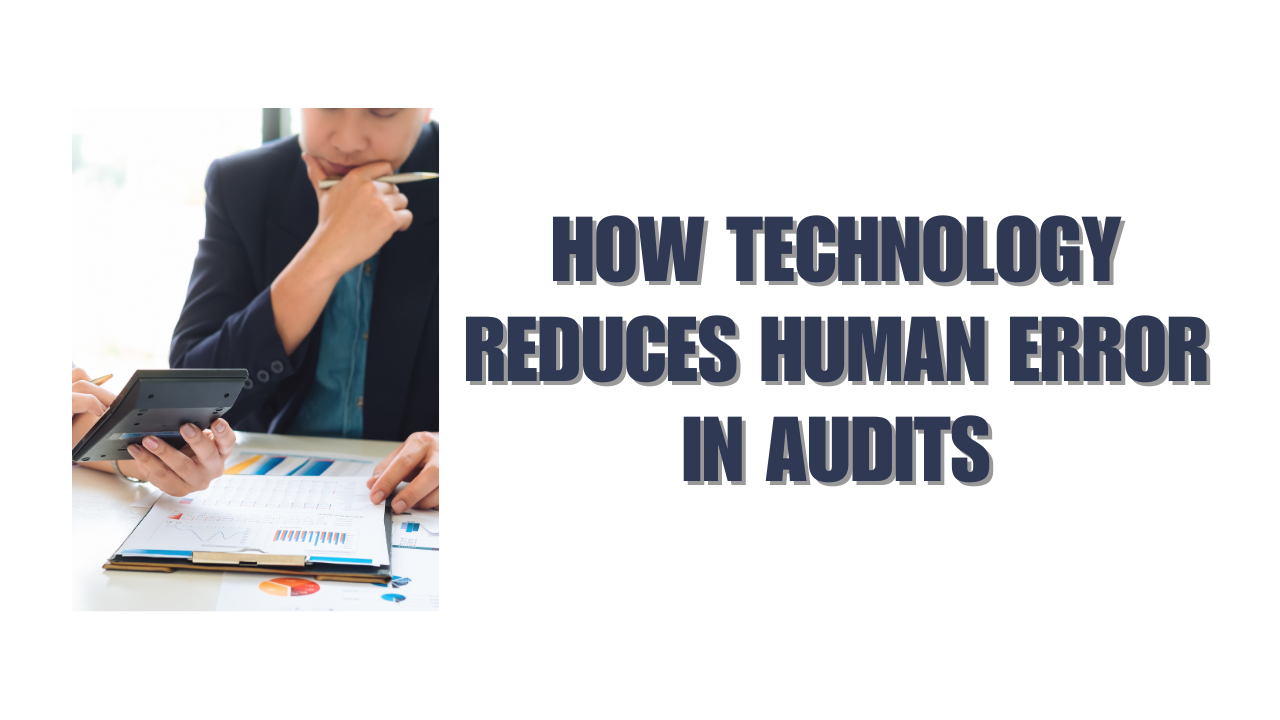Business advisory services in Auckland play a vital role for companies that need to handle unexpected challenges and plan for long-term growth. The COVID-19 pandemic proved that businesses with detailed plans adapted better to change and uncertainty. A well-laid-out business plan became the north star that guided organizations through difficult times.
The right business advisor can transform your company’s trajectory. Your company’s specific growth goals need a customized approach to succeed. Professional business consultants like BDO serve over 25,000 privately-owned businesses throughout New Zealand. They understand that business advisory services in Auckland must address your situation’s unique strengths, opportunities and risks.
This piece outlines growth strategies that deliver results. You’ll learn how to select an advisor that matches your needs and ways to encourage engagement to maximize your business advisory relationship’s value.
What does a business advisor actually do?
A business advisor works as your strategic partner and gives expert guidance to optimize your business practices, improve efficiency, and increase profits. Business advisors in Auckland build lasting relationships with their clients. They don’t just work on single projects like regular consultants do. They give you a fresh viewpoint on both your current challenges and future plans.
Your business advisor’s main job is to spot opportunities and challenges you might miss while running daily operations. They look at your business situation with fresh eyes and help you see the bigger picture. They customize their approach based on what you need, whether you run a new startup or a 10-year-old company.
Key responsibilities of a business advisor typically include:
- Strategic planning – Creating long-term business strategies that help your company adapt to market changes
- Financial guidance – Explaining budgeting, forecasting, funding options, and investment management
- Operational efficiency – Looking at current processes to improve productivity and cut costs
- Crisis management – Giving unbiased assessments during tough times
- Compliance and risk management – Making sure you follow laws while reducing potential risks
Generalist vs specialist advisors
Business advisors come in two types: generalists and specialists. Knowing the difference between them is vital when you’re picking the right support for your Auckland business.
Generalist advisors know a lot about many business areas. They’re like “Swiss Army knives” in the business world. They can explain everything from marketing and finance to operations and strategy. They shine because they can switch between different tasks as your business needs change.
Generalists are great at seeing the big picture. They understand how different parts of a business work together. This helps them spot how changes might affect various departments and make better strategic decisions. Small businesses or those with tight budgets often find them valuable because one person can handle multiple tasks.
Specialist advisors focus on specific areas like finance, marketing, operations, or industry challenges. They become experts in their fields and keep up with new trends and best practices. These advisors can give detailed solutions to complex problems in their area of expertise.
Specialists usually work faster on tasks they know well, which saves time and money. Their knowledge is particularly valuable in heavily regulated industries or those needing specific technical expertise.
Each type has its drawbacks. Generalists might not know enough about specialized tasks. Specialists don’t deal very well with work outside their expertise. Your choice depends on your business needs, size, industry complexity, and growth stage.
Formal vs informal advisory relationships
Auckland’s business advisory relationships range from structured formal arrangements to casual, informal connections.
Informal advisory relationships might mean getting occasional advice from experienced business contacts, mentors, or friends who know your industry. These setups are flexible and don’t need ongoing commitment. They work well when you need help with specific issues. To cite an instance, a neighbor who runs a business or a tech-savvy friend might give you great insights without formal agreements.
Formal advisory relationships involve clear agreements with professional consultants, accountants, or specialized business advisors. These relationships spell out scope, deliverables, and payment terms. Growing businesses often turn these strategic relationships into advisory boards.
Advisory boards are different from boards of directors. They only give advice and don’t have direct management oversight or fiduciary duties. Advisory board members offer tactical advice and industry connections that are a great way to get help, especially for startups and small businesses looking to grow.
Written agreements protect both parties when setting up formal advisory relationships. These should clearly state the advisor’s role, payment terms, confidentiality rules, and intellectual property rights.
The best mix of formal and informal advisory relationships depends on your business stage, complexity, and specific challenges. Many successful Auckland businesses use both types. They rely on professional advisors for structured guidance while learning from informal mentors who bring different viewpoints.
When should you seek business advisory services in Auckland?
Business success or stagnation often depends on getting professional guidance at the right time. Smart timing with business advisory services can save valuable time and resources.
During business growth or change
Business growth brings excitement but also creates unique challenges that need expert guidance. A business advisor in Auckland can help you manage rapid expansion in a sustainable way.
You should ask for business advisory services when:
- Your revenue has increased substantially or client numbers are at an all-time high
- You plan to enter new markets or launch new products
- You want to restructure your business model
- Your staffing, operations, or financial management face growing pains
Growth demands complex decisions about budgets, staff, operations, and taxes. Your business needs careful planning to support expansion without draining resources or reducing quality.
Business advisors prove their worth during mergers and acquisitions. These complex transactions need expert guidance from due diligence through integration to match your strategic goals.
When facing a specific challenge
Some problems just don’t go away despite your best efforts. Business advisory services in Auckland offer fresh views and expert knowledge to tackle specific issues.
Money troubles clearly signal the need for professional help. Business advisors excel at financial management. They streamline expenses, improve cash flow, and create lasting financial strategies to turn struggling businesses around.
Inefficient operations waste resources and cut productivity. A business advisor spots these issues and suggests improvements. Better systems lead to smarter resource use and higher profits.
Today’s market changes quickly. Companies that lose market share or lag behind competitors need help. A business consultant analyzes markets, learns about competitors, and creates innovative ways to help your business stand out and grow market share.
To validate your business planning
Expert business owners benefit from objective reviews of their strategic plans. Business advisors spot blind spots and opportunities you might miss.
Third parties trust business advisors to review and develop business plans, especially during major changes. Auckland’s business advisory services look at strategy, operations, finances, and management. They confirm your existing plan or point out risks and opportunities.
Business advisors bring real-world experience to plan assessment. They study what drives your business, spot hidden risks, test different scenarios, and calculate what each initiative might cost or earn.
Advisors review management skills and assess how well teams can execute plans. They create roadmaps that help interested parties track vital business metrics going forward.
Note that working with professional advisors works both ways. Good preparation helps you get the most value. Take time to prepare and share everything about your business situation openly with them.
How to prepare before meeting a business consultant
Preparation is the life-blood of any successful business advisory relationship. Good preparation will give you maximum value from every consultation minute.
Define your goals and challenges
Before you seek business advisory Auckland services, express what you want to achieve. Ask yourself key questions: Do you need financial guidance to improve cash flow? Are you looking for marketing strategies to grow your customer base? Should scaling your business take priority? Your answers will help you find the right expertise.
A SWOT analysis (Strengths, Weaknesses, Opportunities, and Threats) of your business will help. Pick the top three problems you want to solve or new growth areas to explore. This self-assessment helps business advisors learn your situation and provide targeted advice.
Your timeline matters too. Do you need results next quarter, or does this fit into a longer-term strategy? SMART goals (Specific, Measurable, Attainable, Relevant, Time-based) will focus your discussions and lead to better outcomes.
Gather relevant business documents
Your business consultant needs these essential documents:
- Business planning and financial statements
- Past marketing plans and strategies
- Research reports and competitive analyzes
- Sales data and customer information
- Existing processes documentation
Well-organized documents help your advisor assess your current position and develop informed recommendations. These materials give your business consultant deeper insights into your company’s history, challenges, and opportunities.
Create a clear brief for advisors
A concise brief forms the foundations of a productive advisory relationship. Your brief should cover:
- Your business background and core offerings
- Specific challenges you’re facing
- Clear objectives for the advisory relationship
- Project scope, timeline, and expected deliverables
- Budget considerations and constraints
This document works as a roadmap that keeps everyone arranged properly. Send your brief to several business advisory services in Auckland and compare their responses before making your choice.
Note that an effective brief sets boundaries while leaving room for creative solutions. Let it be a living document that guides the process without limiting innovative thinking. Transparency matters – accurate business data and honest discussion of challenges help your business advisor give relevant advice.
Choosing the right business advisor for your needs
The right business advisory professional in Auckland needs you to think about several factors. A good match with your business needs can make the difference between mediocre results and extraordinary growth.
Questions to ask during the first meeting
Your first step should be to prepare a list of smart questions to assess potential advisors. You should ask about their experience with businesses like yours and request specific examples of how they’ve helped similar organizations. Present a real scenario your business faces to learn about their problem-solving approach.
Other important questions include:
- “Can you provide references from previous clients?” (This reveals their track record)
- “What would your communication process look like if we worked together?”
- “How do you ensure confidentiality with sensitive business information?”
- “Who specifically will be working on my business?” (Ensure the person you’re meeting is actually doing the work)
Evaluating experience and industry fit
Specific expertise matters, but you should also check if the advisor understands your industry’s unique challenges. Their background should include work with businesses that match your size and structure. Their communication style and personality matter a lot because you’ll work closely together.
Most business owners forget to check if an advisor’s values match their own. You need someone who shares your steadfast dedication to ethical practices and long-term success, rather than just focusing on quick wins.
Understanding pricing and value
Business advisors structure their fees in several ways – hourly rates, fixed project fees, monthly retainers, or value-based pricing. Auckland advisors often use tiered pricing structures (such as ‘gold’, ‘silver’, or ‘bronze’ packages) that show exactly what you’re paying for.
The best advisors deliver value that exceeds their cost. As one successful firm states, “If we can show a client how to improve their profit by $17,000 to $34,000, then spending $426 on a business planning session represents exceptional value.”
Note that the cheapest option isn’t always the most economical in the long run. Look for advisors who can show how their expertise will boost your bottom line.
Getting the most from your business advisory relationship
Your business advisor in Auckland can help you achieve the best results if you build a strong relationship. A well-structured partnership will substantially increase the value you get from your business advisory services.
Set clear expectations and objectives
Clear goals create a strong foundation. You should work with your business advisor to set specific objectives and create a practical roadmap. The planning phase should end with a written agreement that outlines expectations, roles, and pricing structure. This document will help both parties stay on track and avoid misunderstandings.
You need to communicate often. Choose how frequently you want to meet and decide on communication channels right from the start. Some businesses thrive with weekly check-ins, others do well with monthly reviews. The key is to maintain steady contact that builds momentum and speeds up progress.
Stay open to new ideas
Your business advisor offers an outside point of view that can challenge your 10-year old thinking patterns. You need to be open to different approaches, even when they don’t match your original plans. Note that your advisor has skills and expertise that add to your own and could reveal unexpected opportunities.
Flexible businesses that welcome change get more value from their advisors. You should ask questions about recommendations to understand the reasoning, but don’t dismiss ideas just because they’re different from usual practices.
Review progress regularly
Your advisory relationship stays productive with regular performance checks. Set up periodic reviews to track progress toward your goals and adjust your strategy when needed. These reviews help create accountability and keep everyone focused on agreed objectives.
Good advisory relationships need honest feedback from both sides. You should address any concerns about your advisor’s approach or recommendations quickly and constructively. Your advisor’s feedback about your business practices is equally valuable.
Know when to pivot or change advisors
The best advisory relationships sometimes reach their natural end. Look out for signs like your advisor frequently referring you to others with more expertise, communication issues, or slow business growth despite following advice.
Your business might outgrow your current advisor’s expertise. When you switch advisors, keep it professional. Have an honest conversation about what worked and what didn’t instead of just reducing contact.
Conclusion
Business advisory services are a great way to get growth and competitive edge for Auckland companies. This piece explores practical ways to find and work with the right business advisor who can transform your company’s path.
Your specific needs should guide the selection of a business advisor. Of course, your business stage and challenges determine whether you need a generalist or specialist advisor. Your long-term goals, not short-term convenience, should arrange the choice between formal and informal advisory relationships.
The right timing plays a crucial role when you ask for professional guidance. Most successful businesses involve advisors during growth periods, specific challenges, or when proving it right critical business plans. Good preparation before these meetings helps you get targeted advice for your situation.
Your business advisor becomes an innovator who grows with you. These relationships just need clear communication, openness to new ideas, and regular progress reviews. Both parties must stay transparent and set realistic expectations early.
Note that business advisory services must deliver measurable value above their cost. A quality advisor challenges your thinking instead of telling you what you want to hear. They provide fresh points of view that create meaningful growth. Their outside perspective often spots hidden opportunities you might miss while running daily operations.
Business environments keep changing, and your advisory needs will likely change too. A switch in approach or transition to a different advisor shows business maturity.
We know that effective business advisory relationships can transform Auckland companies regardless of size. The right advisor becomes a vital asset in your experience, whether you run a startup facing early challenges or a 10-year-old business planning growth. Their expertise combines with your industry knowledge to build strong foundations for lasting success in today’s competitive market.
FAQs
Q1. What exactly do business advisory services in Auckland offer?
Business advisory services in Auckland provide expert guidance to help companies improve their practices, increase efficiency, and boost profitability. They offer strategic planning, financial guidance, operational efficiency improvements, crisis management, and compliance support tailored to each business’s specific needs.
Q2. When is the right time to seek business advisory services?
It’s advisable to seek business advisory services during periods of growth or change, when facing specific challenges, or when you need to validate your business planning. This could include times of rapid expansion, financial difficulties, or when you’re considering entering new markets.
Q3. How should I prepare for meeting with a business consultant?
Before meeting a business consultant, define your goals and challenges, gather relevant business documents (such as financial statements and marketing plans), and create a clear brief outlining your business background, specific challenges, objectives, and budget considerations.






